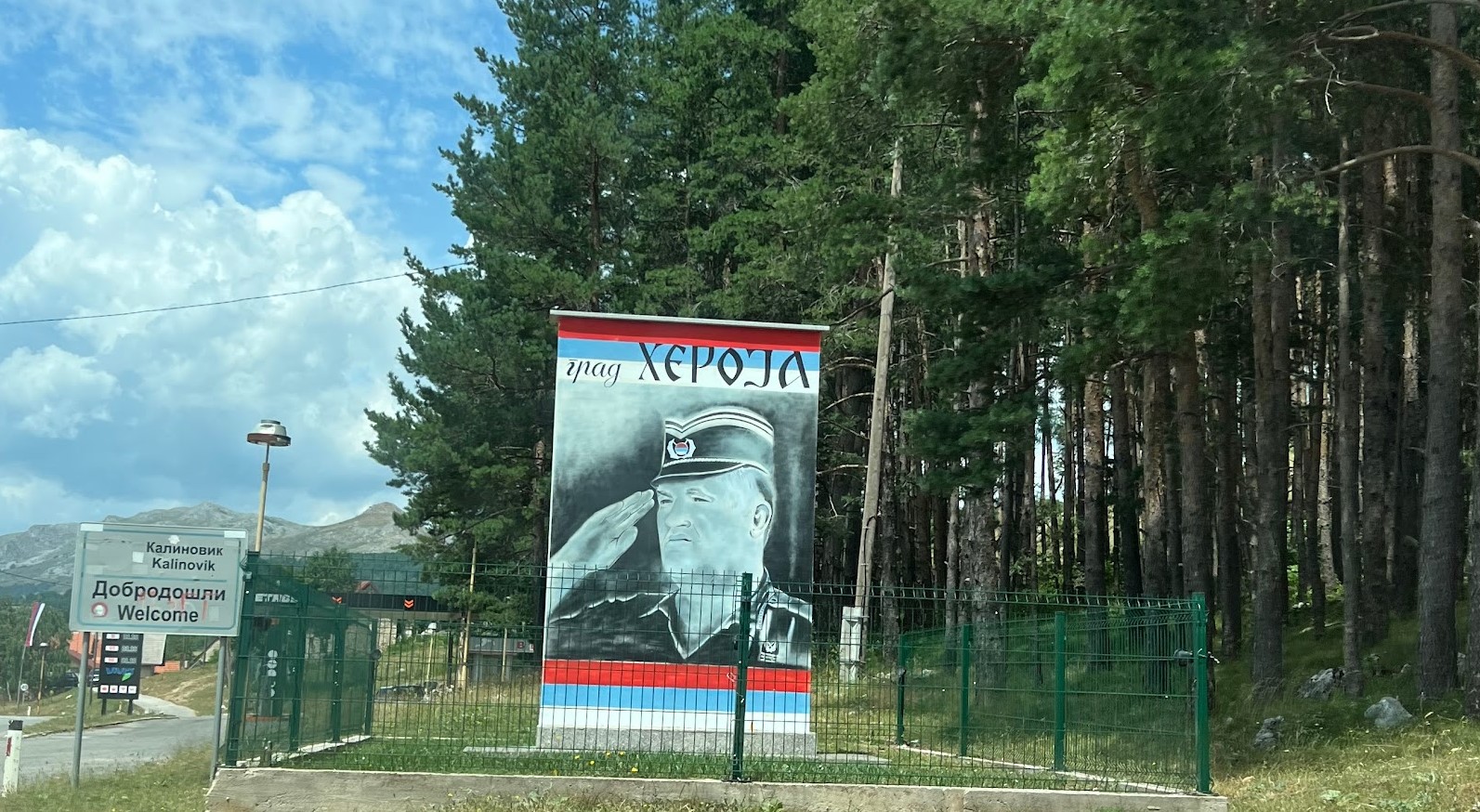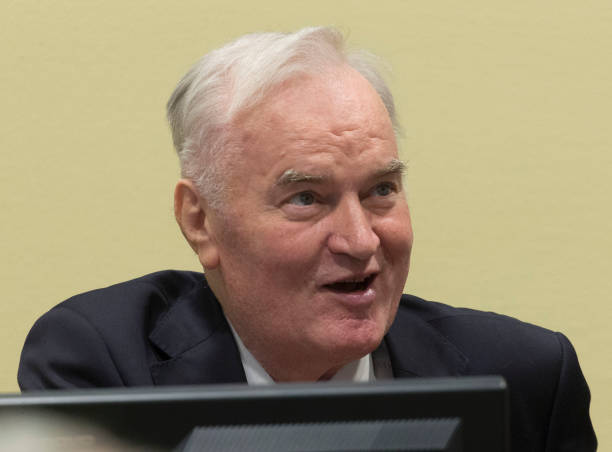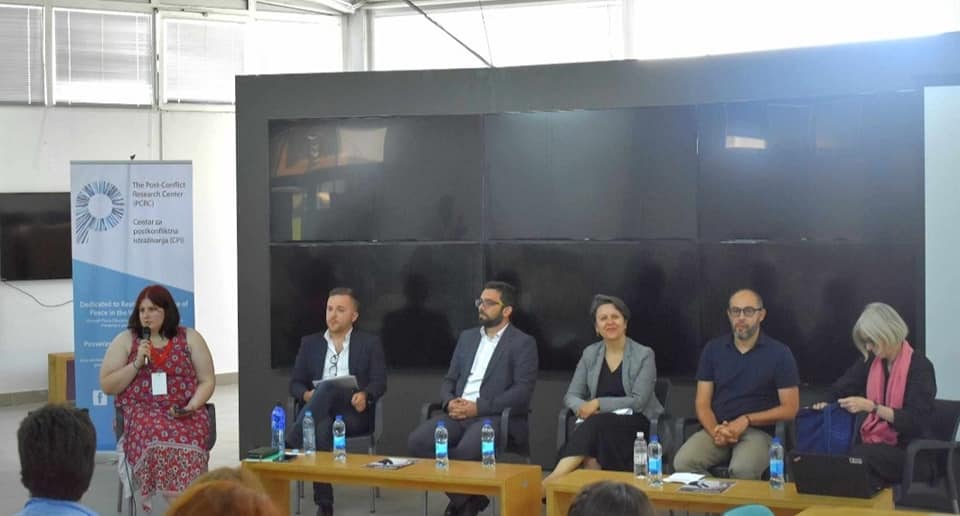
Despite the overwhelming evidence, including numerous firsthand testimonies, forensic findings from mass graves, recovered items, and documented records, genocide denial and hateful rhetoric continues to plague Bosnia and Herzegovina (BiH) and the wider region.
At the core of this hateful narrative is the dismissal of the Srebrenica genocide, in which over 8,000 men and boys were targeted and killed in July 1995, solely because of their ethnic background and religious beliefs, within a UN-designated safe zone.
During this year’s commemoration of the Srebrenica genocide, representatives from local and international organizations held discussions with 40 young individuals who were participating in the Srebrenica Youth School, organized by the Post-Conflict Research Center in collaboration with the Srebrenica Memorial Center. While genocide denial remains prevalent, meaningful change can be achieved through greater youth engagement, judicial activity, and support from the international community.
Ahmed Kulanić, Director of the Sarajevo Canton Memorial Fund, set the stage for the discussion by shedding light on one of the root causes of genocide denial: the commemoration of war criminals. Throughout BiH, there are artistic memorials that glorify the heinous acts committed during the war. Kulanić calls this a “memorial culture,” highlighting that Ratko Mladić, also known as “the Butcher of the Balkans,” is among the war criminals who are celebrated.
One of Mladić’s memorials is situated along the main road leading to his birthplace in the municipality of Kalinovik. At this site, Mladić is depicted saluting, in his military uniform, with the words “Mark of a Hero” (“Trag Heroja”) written in Cyrillic script above him. Next to this display is a sign that reads “Welcome,” which is clearly visible to all incoming vehicles as they enter the municipality, as is the image of Mladić.

During the panel discussion, Agnes Picod, Senior Advisor at the Office of the United Nations Resident Coordinator, went on to illustrate how these elements are weaponized by political leaders for their own agendas, often at the expense of dividing the people of Bosnia and Herzegovina. Central to their political influence are media outlets that are typically state-owned and affiliated with specific political parties. This enables parties to shape the messages they broadcast, with each party striving to concoct and disseminate their own tailored narratives of events, even those that deny genocide.
Picod remarked, “The repetitive nature of the genocide denial is extremely serious, but not enough transitional justice reforms are embraced by institutions.” While acknowledging that transitional justice is a contested topic in the Balkans, Picod said it still needs to be addressed.
She called for a collective effort to learn from the past so that the focus can shift toward rebuilding socio-economic well-being in BiH, rather than contesting historical narratives.
Halisa Skopljak, a legal advisor to the OSCE mission in BiH, drew on her legal expertise to provide a fresh perspective on the issue. Skopljak emphasized the fact that genocide denial, as a form of hate speech, was criminalized in the Federation of Bosnia and Herzegovina back in 2016. However, the lack of earnest investigative and prosecutorial action in genocide denial cases has allowed it to proliferate in everyday life. The media also serves as tool for disseminating these false messages about the genocide, which Skopljak notes is spread mainly by ordinary people online. She observed that “the situation is getting more radical, but new generations can bring forward progress.” Skopljak firmly believes that this transformation can only be realized with the engagement of the judiciary in upholding the law, supported by the international community and domestic institutions.
In this context, another solution was offered by Fermin Cordoba, the European Union’s Senior Political Advisor in BiH, who looks to the country’s education system as the framework for addressing genocide denial. Cordoba asserts that the current system must be changed because it fails to prioritize the development of critical thinking skills among students. Instead, there is a focus on molding students’ mindsets to align with the preferences of specific political parties. The underdevelopment of critical thinking capacities can facilitate the perpetuation of genocide denial and foster a lack of empathy towards other ethnic groups. Cordoba contends that “Education should aim to promote mutual understanding and social healing, focusing on balancing the cognitive, emotional, and ethical dimensions in history instruction.”

Amidst the echoes of the dark past, the seeds of unity, hope and reconciliation are being planted by Srebrenica’s youth, who envision a brighter future. Cordoba’s vision for the future is being realized by Ismar Porić, the General Manager of Ensemble House – EMMAUS & The House of Good Tones in Srebrenica.
Porić also introduced the participants of the Srebrenica Youth School with the work of the House of Good Tones, which was established with the mission of creating a safe environment for the youth of Srebrenica. Their aim is to ensure that these young people feel accepted and have access to educational, cultural, artistic, and volunteer opportunities within their local community.
Some of the activities that the youth engage in include singing, dancing, cooking, baking, and playing musical instruments, among others. The House of Good Tones welcomes children from all religious and ethnic backgrounds, inviting them to come together to set a positive example of bridging divides within the community.
“Our main goal is to offer an alternative for Srebrenica’s youth to all of the bad things that are happening here for,” Porić stated.
By engaging young people to make a difference in their local community, the House of Good Tones stands as a beacon of hope in a place burdened by a dark past.






